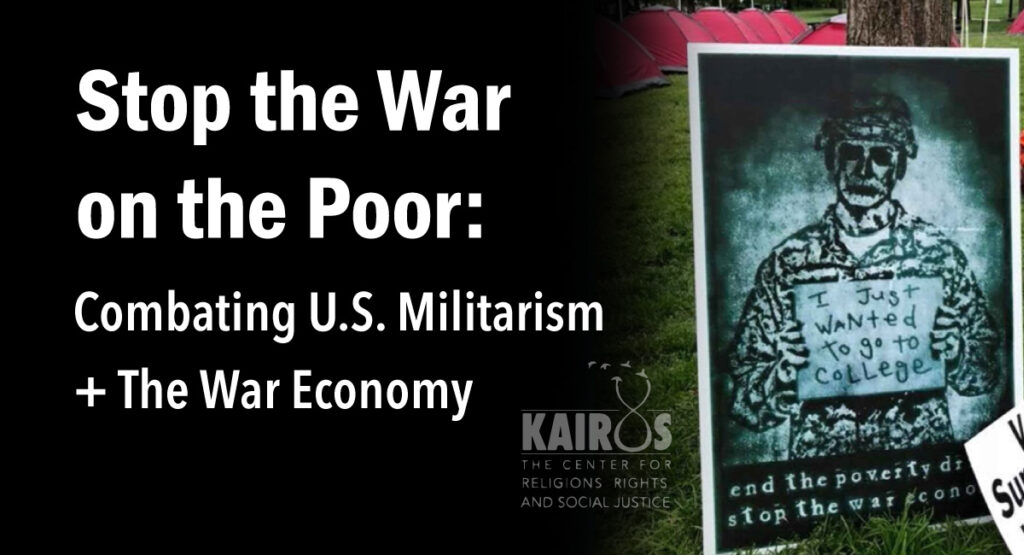
We must rapidly begin the shift from a “thing-oriented” society to a “person-oriented” society. When machines and computers, profit motives and property rights are considered more important than people, the giant triplets of racism, materialism, and militarism are incapable of being conquered. (Rev. Dr. Martin Luther King Jr., “Beyond Vietnam,” April 4, 1967, New York City)
On April 4, 1967, Rev. Dr. Martin Luther King Jr. preached on the giant triplets of evil — racism, poverty and militarism — at Riverside Church in New York City. This was the first time he spoke publicly about his opposition to the Vietnam War. He spoke as a preacher and, grounded in his faith and moral convictions, he connected the war in Vietnam to a war on the poor: a rich man’s war that brought poor black and white men together to kill poor people in another country, while their own country would keep them divided and fighting against each other. This “cruel manipulation of the poor” was driven by profit margins, maintained by racism, and would require a “revolution of values” that could fundamentally reorder the political and economic priorities that made the United States the greatest purveyor of violence in the world.
More than 50 years later, these lessons remain unheeded. Military spending is higher than ever, while there are 140 million poor and low-income people in the richest country in the world. As the COVID-19 pandemic is revealing, these distorted national priorities and the disinvestments in programs of social uplift will have brutal effects on the poor, who lack health care, housing, access to water and sanitation, living wages, worker protections or any adequate system of social welfare.
As a convener of the Poor People’s Campaign: A National Call for Moral Revival, the Kairos Center recognizes that war is an enemy of the poor and any campaign to end poverty must necessarily be committed to ending racism, ending ecological devastation, ending war and militarism and the false narratives that hold up these injustices.
We know that the narratives upholding war and militarism rely on fear and economic insecurity to grow the military-industrial complex. These narratives are used to criminalize and militarize our communities and pit the poor of this country against each other and the poor of the rest of the world. The first step towards deconstructing these narratives is engaging a conversation with people who are directly impacted by war and militarism. Their stories have the power to break through the myths and propaganda and build connections across issues and communities. They have the power to shift the social consciousness of the conditions we face and prepare the way for a new society to be born.
In December 2019, with the support of the Colombe Foundation, the Kairos Center brought over 60 people from nearly two dozen states to a strategic dialogue on ending militarism and the war on the poor. Among this group were grassroots and community organizers working on homelessness, health care, living wages, environmental issues, immigrant justice, education and police brutality; cultural organizers, artists, musicians and poets; clergy; veterans and peace activists; and scholars and policy experts. We came together to explore and expand existing approaches to combating U.S. militarism and the war economy, which are too often isolated from on the ground struggles for racial justice, economic human rights, environmental justice, and democratic accountability. Our goal was to uncover the direct and indirect ways that militarism and the war economy affect our varied communities.
For many people this was the first time they had made clear connections between their community or their work, the declining resources in their communities, and the growing militarization they were experiencing and witnessing everyday. The breakthroughs that came out during this convening illustrated so clearly the broad impacts of war and militarism on us all and encouraged a deeper commitment to integrating an analysis of ending militarism and the war economy into our ongoing work.
This compilation of resources on militarism is intended to continue that process and broaden the conversation we began in December. Fight poverty, not the poor!